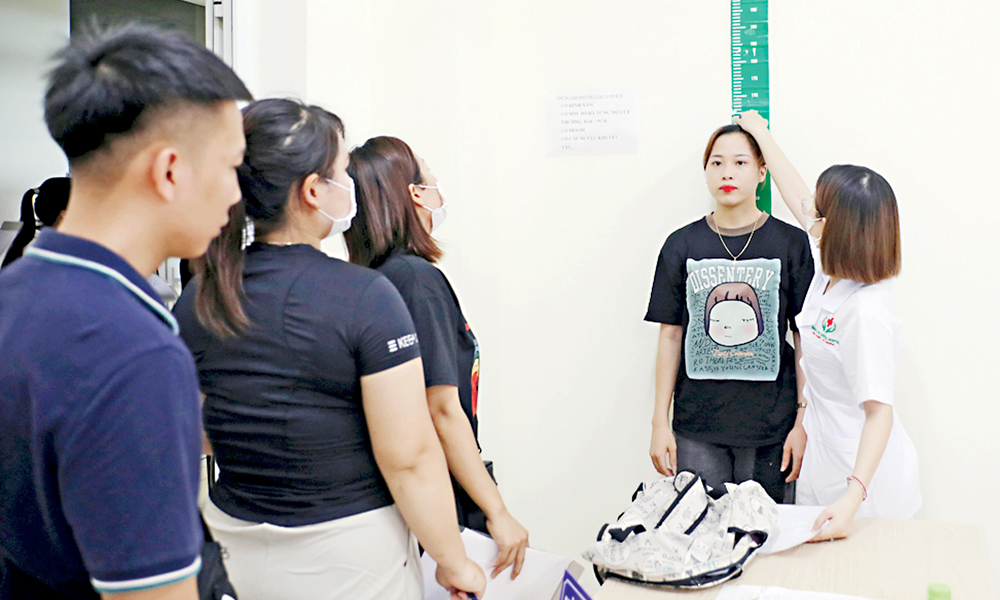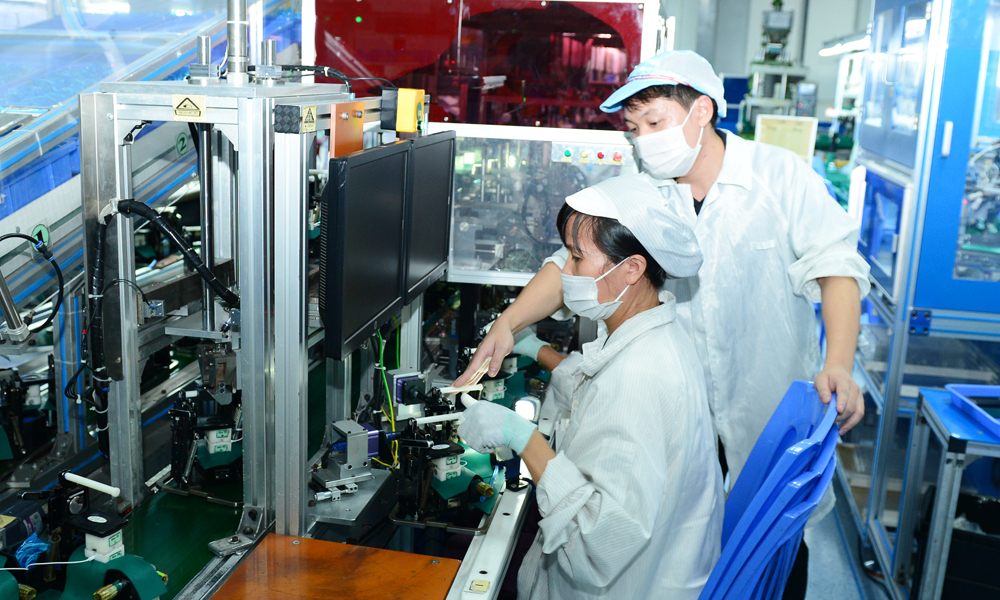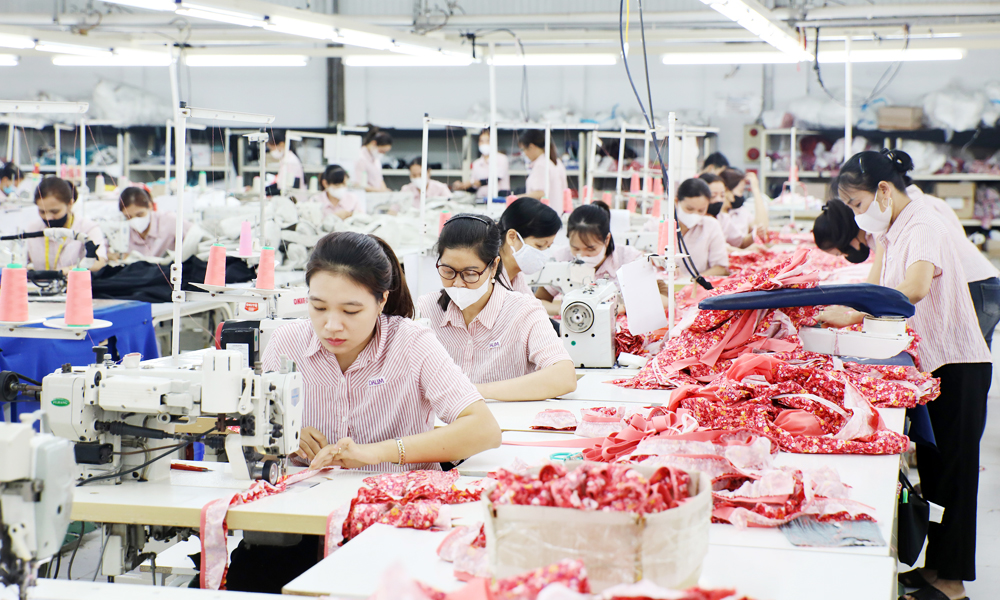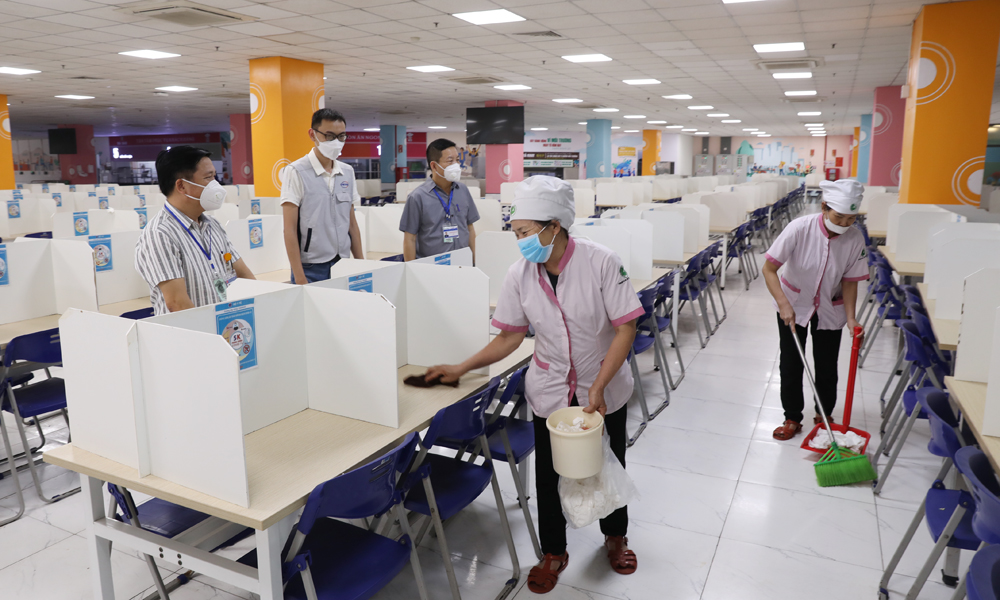Labour export taps high-paying markets
BAC NINH — Over the past five years the northern province of Bac Ninh has steadily expanded its programme of sending contract workers overseas, with departures rising by 10–20% year on year and officials stepping up efforts to steer workers toward higher-paying, well-regulated markets.
Effective channel for poverty reduction
Remittances from overseas workers have become a significant driver of household incomes and local development.
 |
|
A Korean-language class for prospective study-abroad students run by Lien Viet GMP Co. Ltd. in Bac Giang ward. |
Between 2020 and 2024 nearly 24,000 residents left the province to work abroad under formal contracts; in the first eight months of this year the figure reached about 1,500 people, or 70% of the year’s target, according to the provincial Department of Home Affairs.
Personal stories highlight the economic impact. After three years working in Taiwan, 32-year-old Nguyen Van Tuan returned home on leave and described steady work at a food-packing plant, eight to ten hours a day, and company-provided dormitory accommodation.
He said he sends 20–25 million VND (878 – 1,098 USD) per month back to his family. Tuan paid about 60 million VND in total to secure his contract placement and plans to use savings accumulated overseas as start-up capital when he finishes his contract.
“You learn discipline and a professional approach to work,” Tuan said, describing the difference between income from farming at home and wages abroad.
Officials note that for many households, remittance income has eased debts, funded home improvements and contributed to community infrastructure projects.
Younger workers have also benefited. In mid-2022, 25-year-old Nguyen Trung Kien used a loan to travel to South Korea under the Employment Permit System (EPS) programme — Seoul’s regulated employment channel for foreign workers under Korean law — and now sends nearly 40 million VND a month home.
“My family has paid off our debts. The rest will be saved for long-term business,” he told local labour centres.
Stepping up information and counseling for workers
While the “golden era” of sheer volume in labour export has passed and annual departures have fallen from their peak, officials said the emphasis has shifted to improving the quality and protection of workers.
| From 2020 to 2024, Bac Ninh province sent nearly 24,000 workers overseas under formal labour contracts. In the first eight months of this year the province recorded about 1,500 departures, reaching 70% of its annual target. |
“Quantity may be lower, but the skill level and earnings of those who go abroad have risen significantly,” a provincial official said.
Authorities are focusing recruitment on stable, reputable destination markets with higher pay, notably Taiwan, Japan and South Korea where average reported monthly incomes range between 25–30 million VND and in some South Korean placements, 40–50 million VND.
To support this, the province has intensified pre-departure training, including language classes, vocational skills and orientation courses designed to meet hiring standards.
The EPS channel is a priority, officials said. Since 2020, more than 5,000 applicants from the province registered for the Korean language exam under EPS, about 1,200 passed the test and submitted application dossiers, and over 800 had departed for Korea by the time of the report.
Local employment centres have been tasked with coordinating recruitment, hosting advisory sessions at job exchanges and operating dedicated counseling desks to guide applicants through procedures.
Employment service centres in Bac Ninh have also been urged to raise training standards. Measures include defining language proficiency requirements for each job order, contracting qualified instructors and tailoring curricula to ensure trainees meet employers’ technical and linguistic expectations. Assessment and testing are conducted to verify learning outcomes before workers are placed abroad.
To limit illegal overstays and other violations, officials said they are increasing outreach to communities that supply large numbers of overseas labour, encouraging families to sign commitments that workers will return home at contract end, and publicizing South Korean incentives for those who comply with return obligations.
“We work closely with localities to persuade workers to respect contract terms and avoid unauthorized residence,” said Nguyen Xuan Son, director of Bac Ninh Employment Service Centre No.1.
Provincial leaders are also promoting access to preferential loans, tighter oversight of recruitment firms and the direct involvement of licensed labour exporters in local briefings and selection events. The aim, they said, is to create transparent, safe channels for workers and to make it easier for households to finance departures through regulated credit.
Local officials pointed to measurable social gains: a faster-than-expected decline in poverty rates in several communes, improvements to social and welfare infrastructure funded in part by remittances, and a shift in the local labour market toward higher-skilled employment as returning workers invest savings and new skills into the local economy.
 Bắc Ninh
Bắc Ninh













Reader's comments (0)